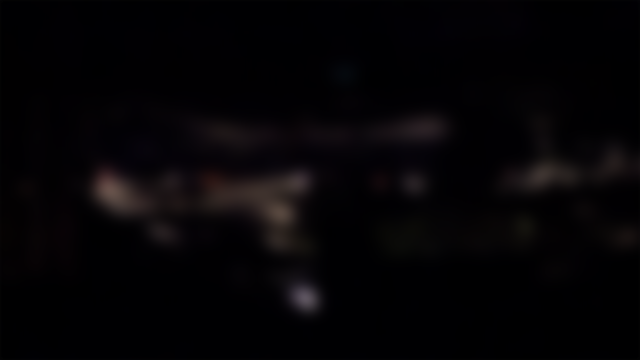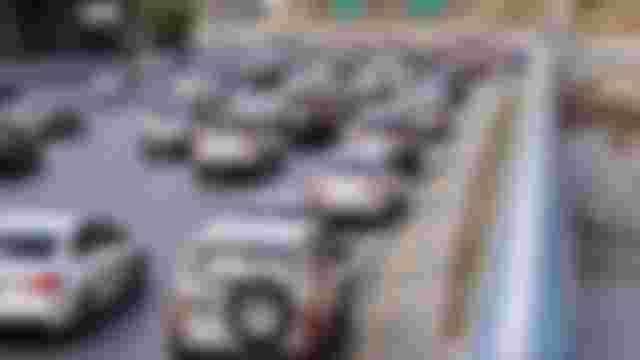Since I saw the subject a couple of weeks ago of the writing prompt on the topic of Darkness, I've been thinking about how to organize my thoughts and tell you about an event that plunged those of us who lived in Venezuela into five days of darkness. I'm writing this chronicle about the biggest blackout that Venezuela has suffered for @JonicaBradley's writing prompt.
The day of the blackout
It was the afternoon of Thursday, March 7, 2019. I'd just come home after looking for my son in his basketball practice at school when the power went out. A power outage in Venezuela is not a cause for alarm. For years they've been part of our day to day. So at first glance, there was no need to worry. However, it seemed that the blackout had affected several zones because I immediately lost the signal from my mobile phone. In Venezuela, it's common when the power goes out to lose the mobile phone signal in the area because the batteries of the telephone operators' repeaters are mostly damaged.
My husband and my son went out in the car to look for some news. They managed to tune into a radio station and learned that the blackout had been nationwide since many states in the country reported no power.
By landline, I was able to call my mother. And I've found out that she had no electricity too. We soon learned that the whole city of Caracas was without power. And shortly after, the news was confirmed, the blackout had been throughout the country. Soon the landlines also stopped working.
Some neighbors told us about the chaos in the streets. Many people had trapped on the subway. And rivers of people walked through the streets trying to get to their homes before night fell.
I remember we had an early dinner by candlelight. At that time, we had no idea of the severity of what was happening. And the magnitude of the blackout. That night we went to sleep in the dark.

The next day
The next day we woke up, and we were still without electricity. The problem seemed very serious. At that time, our phones had almost no battery. So we decided to go for a ride in the car to see how the situation was on the street. We wanted to buy food that didn't need refrigeration. Since the power had gone out, we had tried not to open the refrigerator to prevent it from losing the cold and spoiling the food. We also wanted to charge our phones and look for an area with a signal that would allow us to communicate with our family and friends.
In the streets, there weren't many people. The government had suspended classes and decreed the non-working day. But at the highway, there were many cars stopped on the sides. The people were looking to catch a mobile phone signal there. In several areas of the highway, there was a good signal. We all wanted to communicate with relatives abroad or in the inland country. And also looking to watch some news regarding the blackout and the seriousness of the situation. For three days, we didn't hear from my in-laws. They live in Maracaibo, Venezuela's second largest city. It was impossible for us to communicate with them during the first three days of the blackout.

Very few grocery stores were open. Only those who had their own power plants. But in those that were open, there was chaos for paying. The connections with most of the banks were down, and it was almost impossible to pay with electronic means. In Venezuela, cash is very scarce. Only a few people had bolivars in cash. And whoever had them, with the banknotes they had, there was little they could buy. The banknotes in Venezuela have a very low denomination compared to the prices. It's one of the effects that hyperinflation has had in recent years. In those days, more businesses began to accept payments in dollars cash. Something that became common in the months after. Since the government was forced to relax controls on the use of foreign currency in the economy.
That day in the afternoon, we were worried that the food would go spoiled. And getting ice to preserve it a little more was another odyssey.

But the biggest problem was the water. Without a power supply, there was no water. We decided that if the power had not returned the next day, we would move to my mother's house. Of course, she didn't have electricity either, but she did have water. The building where she lives has a water tank on the roof. Therefore it doesn't need a hydro-pneumatic system to work. And for some unknown reason, it also has never suffered water outages, such as frequent here. It was a huge relief for us those days. And that made a huge difference for us. It was the difference between being desperate to be very worried.
Water
Although in Venezuela, people are used to living with a shortage of water. The rationing and the lack of service are also part of our daily lives. Those days it was different. People began to despair.

Water became the main problem for Venezuelans. People needed to get it at any cost. The pumping systems were completely stopped, and people were looking for any source of water to supply themselves.
In the streets, there were lines of people wherever there was a water supply. Nobody cared about the drinkability of the water they were going to carry.

The days that followed and solidarity
All the news were to be worrying because the electrical system wasn't working again. There were hospitals that no longer had electricity service because their emergency power plants had failures. Lack of water remained a serious problem for everyone. Fuel also became scarce, and the few gasoline service stations that were open had queued vehicles for miles.
They were tough days. But also full of displays of solidarity. People cooked all the food that required refrigeration and distributed it among the neighbors so that it wouldn't spoil. And they even went out to distribute it to people in need. Many people who had electric stoves in their homes couldn't even cook. And neighbors who had gas stoves let them use theirs to prepare their meals. Those who had a small power plant let neighbors and friends charge their phones. Others tried to take advantage of the situation and charged to let others use their power plants, but they were not the majority. People helped each other as best they could to survive the situation in the best possible way.
And the light came back
After five days, some areas began to regain power supply. My mother's neighborhood was one of the first in Caracas to recover it. However, the joy didn't last long. A few hours later, the electricity went off again. And it took another 24 hours to return.
I still can't believe how lucky we were that we didn't run out of water during the blackout at my mother's house.
At my home, it took three more days for the service to be restored. The blackout lasted 8 days. And after we recovered the power supply, the water service took another week to restore.
We are so used to technology, the internet, the cell phone, and basic comfort. That it's hard for us to imagine how life can be without all those things. I already know.

The latent threat of another blackout
The government gave a series of nonsensical justifications. Talking for external sabotage to excuse this terrible incident in our recent history. And not to assume its great responsibility for the years of indolence and theft of the country's resources. But at this point, I'm not going to sink because I could be writing and ranting all day.
After two years and four months, power shortages are still frequent. And the threat of a new national blackout is still latent. Recently, several media have published news with warnings about the imminence of another blackout. Hopefully, they don't hit the mark, and nothing happens. But certainly given the situation of the national electrical system. The odds that nothing will happen are against it.
Closing thoughts
In those days, one of the things we did was go out to film what was happening. My husband is editing a documentary with the filmed material and some about the protests and demonstrations that had taken place in the country in recent years.
We have a few mixed feelings about whether or not to show the documentary once finished for fear of our integrity. And I guess that until the possibility of leaving the country isn't an option, we won't do it. One of the things we have learned to live with it's the fear of exposing ourselves. The risk of being arrested for freely express your thoughts, telling an awkward truth, or trying to show the world what i's happening here. It's latent here every day. Journalism is a risky profession in this country, and citizen journalism can be too. We have some acquaintances who have already lived it.
I always regretted not keeping a journal of those dark days. I think that with these notes, I at least record what we lived in those days.
If you have reached this point, thank you for reading me. If you like it, a comment or thumb up will be greatly appreciated.
If you haven't read Jonica's post on the Darkness prompt, you can read it here. And If you want to participate in the prompt. Just follow the rules:
Write about Darkness
Write 100% original content
Write at least 600 words
Tag @JonicaBradley
Have fun!
My previous articles on the prompts:
#1 Freedom - What does Freedom mean to me?
#2 Motivation - Why I'm using cryptos? - my motivations
#5 Questions - Too many questions
To my wonderful sponsors @FarmGirl @Panky (CashReviews) @Bloghound @TengoLoTodo @TheEmpress @fantagira @HappyBoy thank you all! You rock! If you haven't visited their profiles yet, I encourage you to do so.
All images were taken from footage my husband filmed during the blackout.
And if you are in Noise, you'll find me as CoquiCoin as well.






Very sad. Coqui :( I experienced blackouts for a week too but not politically connected. It was only due to disasters and calamities. Bless your country, my friend!